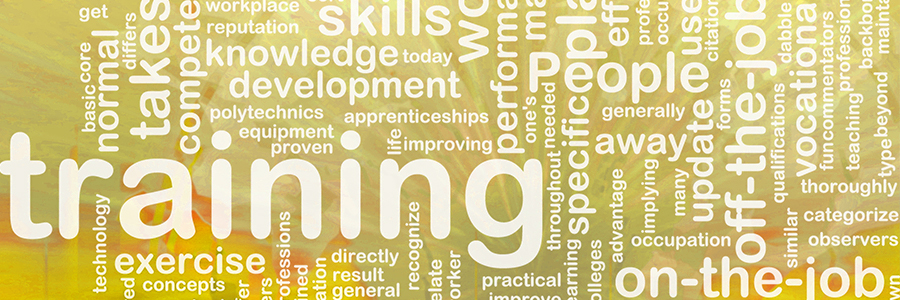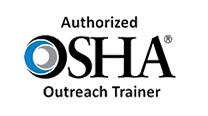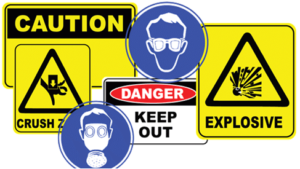
Safety Training By
Help reduce incidents, stay in compliance and transform safety culture with our safety training solutions featuring versatile delivery methods and backed by KRIAZ years of real-world experience.
Health and Safety Training
Our safety training solutions integrate proven programs, real-world experience, engaging training content and advanced learning technologies to help increase safety awareness and safe behaviours. From safety observations to instructor-led workshops to OSHA compliance training courses, KRIAZ Sustainable Solutions has the tools to help organizations of all sizes and needs improve workplace safety.
Industrial safety can be defined as the ability to manage the risks inherent to operations or related to the environment. Industrial safety is not a dislike of risks; rather it is a commitment to clearly identify them in relation to production operations, assess them in terms of quality and quantity, and manage them
Safety Workshops
Learn from our Experience: The knowledge we’ve gained from solving some of the world’s most complex safety challenges, including our own, is available to you in our portfolio of workplace safety training workshops. Choose from open sessions or arrange an interactive seminar or workshop at your site. Our knowledgeable instructors draw on their own extensive experience in safety, management and operations, offering real-life examples that drive home the importance of safety in the minds of your employees
Compelling Training Content
Bring Your Training to Life: In all our health and safety training materials, we offer compelling content designed to draw participants in and improve retention. Off-the-shelf safety topics include confined space entry, fall protection, fire and electrical safety training, hazard communication, forklift and crane safety, distracted driving, arc flash explosions and much more. Don’t see exactly what you need? Don’t fret. Our training professionals can help you create original learning and video content, customized to your unique needs.
The Golden Rules of Occupational Safety: Thoroughness and Vigilance. Everyone must understand the basic rules of prevention and comply with them. These golden rules reinforce and complete our procedures for identifying dangers and controlling risks.

These essential rules were established using records of accidents observed in our different businesses. They must be followed to the letter. Everyone should intervene as soon as a deviation is observed and stop work if the risk is not controlled. The twelve themes covered by these rules are summarized below and a detailed brochure can be downloaded by clicking on the Golden rules.
1. High-risk situations
Do not start up or shut down equipment or installations without using the appropriate written operating procedure.
Any situation where the risk level is temporarily increased is reported. Induced risks are identified and analyzed and compensatory measures are implemented.
2. Traffic: Machine/vehicle/cyclist/pedestrians
Do not exceed the speed limits.
Traffic rules apply inside and outside sites.
3. Body mechanics and tools
Do not carry out work if you do not have the right tools for the job and the environment.
Adopting an inappropriate posture when handling objects or using tools can cause physical harm.
4. Protective equipment
Do not access installations and perform work without wearing general or task-specific personal protective equipment (PPE).
Collective protection is preferred. Individual protection completes preventive measures already taken.
5. Work permits
Do not perform work without a valid work permit.
Any work performed on site requires a permit.
6. Lifting
Do not walk under a load while lifting is taking place.
For any work involving a crane, hoist or other mechanical system, a preliminary risk analysis is required. Equipment must be in good condition. Personnel must be qualified and access to the area must be restricted.
7. Work on powered systems
Do not perform work without checking that the power and product source supply has been rendered inoperative.
Some works require the energy to be safely discharge or the equipment to be purged and vented. In such cases a lockout system is set up to isolate the energy or product according to a specific method.
8. Confined spaces
Do not enter a confined space until isolation has been verified and the atmosphere checked.
Do not enter a confined space (container, tank, well, etc…) without supervision and only after the atmosphere and isolation have been checked.
9. Excavation work
Do not perform excavation work without a valid work permit comprising a map of all underground hazards.
Manual or mechanical excavation work, including dragging rivers and seabed’s, can only start after a risk analysis has been performed to identify all hazards in the zone and related precautions have been taken.
10. Working at heights
Do not work at heights without a safety harness when there is no collective protective equipment.
Work at heights is performed on fixed or mobile platforms with a guardrail designed for the task at hand.
Work on rooftops (buildings, reservoirs) is performed only after the roof’s solidity has been checked and appropriate protection has been set up.
Ladders are a means of access only; their use must remain exceptional.
11. Change management
Do not make any technical or organizational changes without prior authorization.
Any changes in technique or organization must be the subject of a risk analysis.
12. Simultaneous operations or co-activities
Do not perform simultaneous operations or co-activities without a prior visit.
All work or operations inside a unit in operation can increase risk levels. Interferences due to simultaneous operations or joint-activities must be identified and controlled.
Course Titles

